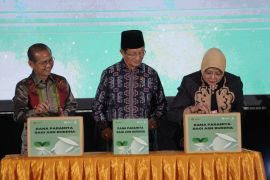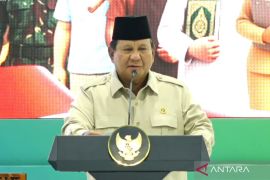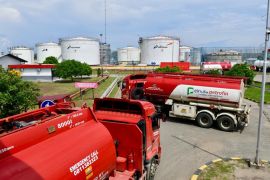As a step to achieve this purpose, exports of various products to China would be boosted, the official from the office of the coordinating minister for economic affairs said.
"We must increase the export of prime commodities," he said. He was accompanying the Coordinating Minister for Economic Affairs, Darmin Nasution, during an Indonesia-China high-level meeting on economic cooperation with a delegation of the Chinese State Council, led by Yang Jiechi.
The interaction followed the first meeting held on January 26, 2015 in Beijing, China.
Rizal explained that exports of prime products are very important to replace coal whose price dropped in the international markets. Coal was one of the main Indonesian products exported to China.
"Twenty-six percent of our exports to China comprised coal, but its price is now down and consequently, the export value has dropped. Also, Chinas demand for the product has also come down due to the economic slowdown," he stated.
Rizal said negotiations to resolve the issue of trade access barriers against certain products from Indonesia were also part of the efforts to overcome the deficit.
"Twenty-eight downstream products from Indonesia are still excluded from the ASEAN-China Free Trade Agreement while our prime export commodity, rubber, attracts a 20 percent import tariff. If this is reduced to zero percent, our rubber export potential will increase. This is still being negotiated," he informed.
Industrial and investment issues, such as the issue of stay permits for foreign workers, integrated industrial zones, land clearance for infrastructure development and cooperation in energy, agriculture, fisheries and finance, were also discussed in the meeting.
Realization of investment from China in Indonesia is also still low. In view of that, the government has specially set up a China Desk at the Capital Investment Coordinating Board (BKPM) and Indonesia Investment Promotion Centers in Beijing and Shanghai.
"The setting up of the desk at BKPM will help know about the problems that the Chinese investors face while the IIPC will help in promoting business opportunities and ease of doing business in Indonesia. Hopefully, this will help boost the interest in investing in the country," Rizal said.
Regarding the bilateral currency swap agreement between China and Indonesia, expected to expire in October 2016, he said the issue of extending this pact was also discussed, as also a proposal to increase its value from 100 billion Yuan currently to 130 billion Yuan.
The Chinese government also offered loans based on the Preferential Buyers Credit scheme, worth US$10 billion, to finance infrastructure projects in the ASEAN region. Indonesia is expected to benefit from the proposal, he stated.(*)
Editor: Heru Purwanto
Copyright © ANTARA 2016










